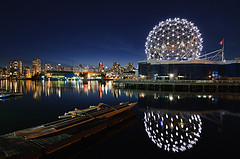Racheal Devine About 200 words
INTD 105
11/28/16
In Glenn McClure’s skype session, he starts by talking about the geography of Antarctica and how it is completely flat, making it very easy to get lost especially at night and in the fog. As the students ask questions, the things that caught my attention are that there are about 800 people living in the station right now, which I thought it was a much smaller research station than that. Also, the size of the seismometer, 5ft wide 7ft deep, that there is a difference in the sound of the snow crunch depending on the temperature, that there’s so much marine life but the land is barren, and that there are other stations doing other research related to Glenn’s but also not. He also talks about how the scientific data is hard to relay to the public and how he will help through music where people will wonder more when they heat it. Calling it terrible beauty and somewhere where human are not meant to be but because of that it strips away the distractions of life which sounds scary but at the same time freeing. His part in this research is quite unique and you can tell he is very passionate about it.
